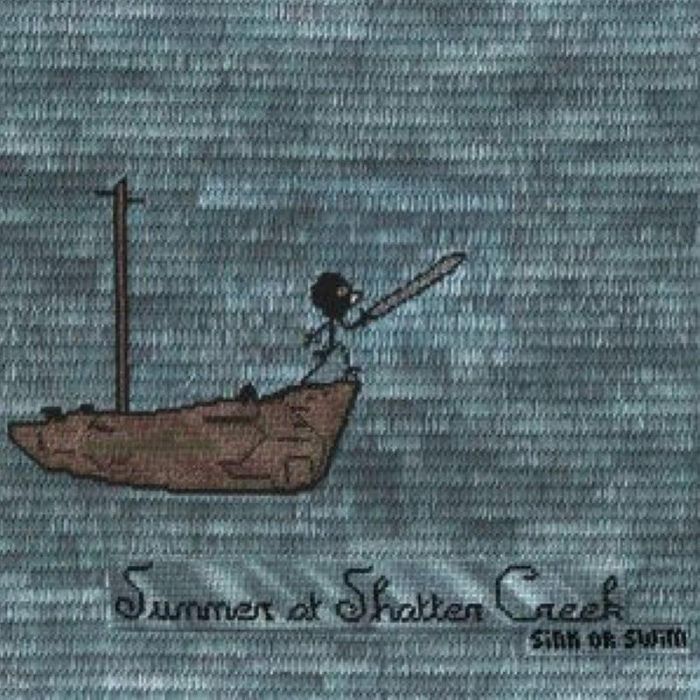Sink or Swim by Summer At Shatter Creek (Review)

Every so often, a CD comes along that makes it all worthwhile, that makes it worth sifting through stacks upon stacks of mediocre punk and emo bands, bland electronica, and artists who think you might be interested simply because you happen to share similar religious beliefs. So when a CD like Summer at Shatter Creek’s Sink or Swim arrives in the midst of this, it feels like a tiny little blessing.
As is usually the case with many of the CDs I receive, I first listened to this at work. And within the first 15 seconds of the aptly-titled “Something To Calm Me,” my office and co-workers just seemed to disappear. The EP’s approach is quite simple — it’s just one man named Craig Gurwich, his unearthly voice, a piano, and an empty room. “Something To Calm Me” uses this very sparse and stripped down arrangement to staggering and haunting effect, layering Gurwich’s delicate voice over rolling, evocative piano melodies.
The remainder of the EP furthers and strengthens the fragile mood created by the opening track. “Worlds Away” matches the beauty of “Something To Calm Me” stride for stride, and maybe even exceeds it. Gurwich’s vocals are even more spectral this time around, lending the song a funereal air that’s both solemn and wistful. And as each piano note rings out, bathed in echo and reverb (not the studio kind, but the kind that only seems to exist in old, weatherbeaten houses that may or may not have a few sad ghosts floating down their hallways), they seem to shimmer with a sort of sad nostalgia that proves quite affecting.
The most ready comparison might be to Linford Detweiler’s solo albums. But there’s something even sadder and more affecting at work here. Most likely, it’s Gurwich’s use of his vocals that adds the additional punch. Also, there’s a much “lower-fi” quality to Gurwich’s recording, a certain rawness and lack of polish that serves only to add to the CD’s intimacy, that draws in the listener and surrounds them.
In the liner notes, Gurwich notes that these are actually stripped down versions of songs from his upcoming full-length (due out this fall). And for the life of me, I can’t imagine what could (or should) be added to these songs. They’re very nearly perfect as they are, in their rough, stripped down form. Part of me is almost reluctant to check out the rest of Gurwich’s catalog, as this EP seems to exist in its own timeless emotional space — and I don’t want to ruin that. But on the other hand, I’m curious to see how Gurwich’s music unfolds, and what other elements he might weave into an already haunting sound.